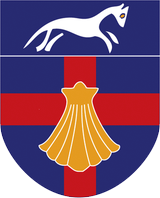Art
Intent
At Radley Primary school, our intent for the teaching and learning of Art is to foster creativity, expression, and cultural understanding among our pupils. We believe that Art is an essential subject that contributes to the holistic development of our learners, enabling them to explore their imaginations, develop critical thinking skills, and appreciate different forms of artistic expression.
Our intent is centered around the following key principles:
- Quality Art Education: We strive to provide a high-quality art curriculum that is inspiring, challenging, and inclusive. We aim to expose our pupils to a range of artistic styles, techniques, and mediums, allowing them to develop their artistic skills and knowledge over time.
- Promoting Creativity: We encourage our pupils to think creatively and independently, enabling them to generate unique ideas and express themselves through various art forms. We provide a supportive and nurturing environment that fosters imaginative thinking and risk-taking in their artistic endeavors.
- Cultural Awareness: We acknowledge the importance of diversity and cultural understanding in Art education. We expose our pupils to art from different cultures and time periods, broadening their knowledge and appreciation of various artistic traditions and perspectives.
- Progression and Skills Development: We ensure that our pupils progressively acquire and develop essential artistic skills throughout their primary school journey. We provide ample opportunities for practice, exploration, and experimentation to enable them to refine their techniques and enhance their artistic abilities.
- Cross-Curricular Links: We actively seek opportunities to integrate Art with other subjects, such as History, Geography, and English, to deepen our pupils' understanding and make meaningful connections across the curriculum.
- Engagement with the Wider Community: We actively engage parents/carers, local artists, galleries, and museums to enrich the artistic experiences of our pupils. We believe that showcasing their work and providing opportunities for public exhibitions can boost their confidence and sense of achievement.
Implementation
To fulfill our intent, we have developed a robust and comprehensive implementation plan that ensures increasingly high standards in the teaching and learning of Art within our primary school.
Our implementation strategies encompass the following key areas:
Curriculum Design and Sequencing-
We have developed a well-structured and coherent art curriculum that is aligned with the National Curriculum and tailored to meet the needs of our pupils.
-
Our curriculum includes a sequenced progression of skills and knowledge, building on prior learning and enabling pupils to develop mastery in different artistic techniques and concepts.
-
We provide termly units of work that cover a range of artistic areas, such as drawing, painting, sculpture, printmaking, and digital art. Each unit is carefully planned with progressive learning outcomes and appropriate resources.
-
Enrichment
-
We collaborate with Radley College art department, local artists, museums, galleries, and community groups to provide workshops and exhibitions, enabling pupils to interact with professional artists and experience different art forms firsthand.
-
We also offer a range of workshops and trips to enhance our pupils' artistic experiences beyond the classroom.
Cross-Curricular Integration
- We actively seek opportunities for cross-curricular links, using Art to enhance learning in other subjects and deepen pupils' understanding.
- For example, we integrate Art with History by exploring famous artists and relevant art movements from different historical periods.
- We link Art with English by incorporating visual literacy and art analysis activities, where pupils interpret and respond to artworks through creative writing or drama.
Assessment and Feedback
- Our assessment approach in Art focuses on providing formative feedback to support pupils' improvement and celebrate their achievements.
- We use a combination of teacher observations, peer assessments, and self-assessments to gain a holistic understanding of pupils' progress in artistic skills, techniques, and conceptual understanding.
- We maintain portfolios of pupils' artwork showcasing their development over time, enabling them to reflect on their artistic journey and set personal goals.
Impact
Our approach to the teaching and learning of Art has a significant impact on our pupils, contributing to their overall personal development and academic achievement.
The impact is evident in the following ways:
-
High Levels of Engagement and Motivation: Pupils are enthusiastic and engaged in art lessons, actively participating in creative tasks, and showing a genuine passion for artistic expression.
-
Significant Progress in Artistic Skills: Pupils demonstrate measurable progress in their artistic skills, techniques, and knowledge, as evidenced by their increasingly sophisticated artwork and their ability to articulate artistic concepts.
-
Developing Creative Thinkers: Through nurturing creativity and imagination, our pupils become confident and independent thinkers, exhibiting the ability to generate original ideas, solve problems, and approach tasks with a creative mindset across the curriculum.
-
Cultural Understanding and Respect: Pupils develop a deep appreciation for art from different cultures and historical periods, reflecting increased cultural understanding, empathy, and respect among their peers and wider community.
-
Positive Well-being and Self-esteem: Art provides a platform for our pupils to express themselves, boosting their self-confidence, resilience, and emotional well-being. It also offers a therapeutic outlet that supports their mental and emotional development.
-
Celebration of Pupils' Achievements: By showcasing pupils' artwork within and beyond the school community, we celebrate their achievements, fostering a sense of pride, motivation, and recognition.




